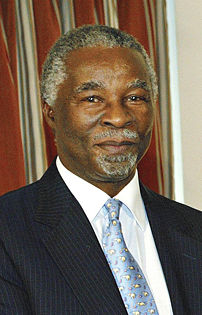
The South African design expo Design Indaba makes the claim that global ascendency has passed to the other half of the world:
Stand back Milan, London and New York, here comes SOUTH! SOUTH is an inversion of hand-me-down Eurocentric creativity, a world map turned upside down conceptually, so that South Africa is on top. Over the past few years Design Indaba has witnessed the organic emergence of a new creative ethos. With South Africa’s diverse, rich heritage as source material, and inspired by the rebirth of the South African nation, definitions that move beyond ethnicity, religion, race or language have emerged.
This marketing campaign is useful for raising some important questions about the idea of South:
- If North and South are competitors, what is the game in which they are participating?
- Is there a way that South can provide not only a new slumdog competitor in the global fame game, can it also help craft some new rules?
- What rules might these be?
- Why shouldn’t a poor country like South Africa have the opportunity to enjoy the fruits of global glory?
- If South Africa benefits from this inversion of value, what about other countries who share this part of the world, like Madagascar, Australia, Fiji and Argentina?
 On 21 September, the South African President Thabo Mbeki addressed the nation with the news of his resignation. In a well-discipline speech, he maintained his loyalty as a cadre of the movement and promoted the values of the ANC.
On 21 September, the South African President Thabo Mbeki addressed the nation with the news of his resignation. In a well-discipline speech, he maintained his loyalty as a cadre of the movement and promoted the values of the ANC.
Mbeki spoke of the ‘age-old values of Ubuntu‘ on which their liberation movement is based. These values involved ‘selflessness, sacrifice and service in a manner that ensures that the interests of the people take precedence over our desires as individuals.’
Near the conclusion of his speech, Mbeki said that he departed his office:
knowing that this country has many men and women who have dedicated their lives to ensure that South Africa, Africa and the countries of the South will, in time, manage to ensure a better world for all of humanity.
South Africa strongly identifies with the South as a focus for both its political values and its unique contribution to the world. The next President has the challenge of continuing this story in a world where the division between North and South becomes less clear.
 It’s rare to hear voices out of South Africa, other than those that confirm northern stereotypes of violence and disorder. If you are seeking an alternative view, then I would recommend the Victor Dlamini interviews. Dlamini talks with some of the lions of the South African literary scene, including Mbulelo Mzamane, Njabulo Ndebele, Breyten Breytenbach – the discussion with Lebo Mashile is particularly lively.
It’s rare to hear voices out of South Africa, other than those that confirm northern stereotypes of violence and disorder. If you are seeking an alternative view, then I would recommend the Victor Dlamini interviews. Dlamini talks with some of the lions of the South African literary scene, including Mbulelo Mzamane, Njabulo Ndebele, Breyten Breytenbach – the discussion with Lebo Mashile is particularly lively.
As much as what they have to say, it is the manner in which they say it which is important. The contemplative and reflective conversations say much about the inquiry that is part of the South African project today.
A Journey through the Souths of the World

 On 21 September, the South African President Thabo Mbeki addressed the nation with the news of his resignation. In a well-discipline speech, he maintained his loyalty as a cadre of the movement and promoted the values of the ANC.
On 21 September, the South African President Thabo Mbeki addressed the nation with the news of his resignation. In a well-discipline speech, he maintained his loyalty as a cadre of the movement and promoted the values of the ANC. 